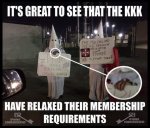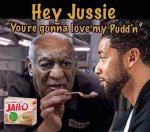Frankly, the knee-jerk reaction assuming that I "don't understand" how tax giveaways to corps work is disappointing.
No, it's not possible that I could come to a different conclusion. The debate *must* be over my intelligence & understanding, instead of the merits of the deal.
— Alexandria Ocasio-Cortez (@AOC) February 19, 2019
Ocasio-Cortez also attacked the speculative deal's effect on the rental housing market, writing: "There's no CHANCE that the speculative insider real-estate buys that were creating immediate spikes in rent in one of the most rent-burdened communities in NYC could have possibly been unpopular?"
Or, she added, "that a technology giant of big-brother-esque potential was selling (notoriously flawed & racially biased) facial recognition technology to [the U.S. Immigration and Customs Enforcement agency] while trying to move into 1 of the most immigrant-dense areas of the world?" referring to a scandal that has plagued Amazon in recent months.
"No, it must be because I'm dumb," she said.
'Doesn't seem to know much'
Ocasio-Cortez's level of intelligence has come up more times than we can count, but one prominent critic to take aim at the politician was White House Counselor Kellyanne Conway, who, during an appearance on Fox News's America's Newsroom called Ocasio-Cortez a "29-year-old congresswoman who doesn't seem to know much about anything."
Conway's comments came after Ocasio-Cortez accused then-outgoing White House Chief of Staff John Kelly of "cowardice," calling on him to apologize to Representative Frederica Wilson, a Florida Democrat, for calling her an "empty barrel" and incorrectly accusing her of having tried to take credit for the dedication of an FBI building in a 2017 incident.
Ocasio-Cortez hit right back at Conway, sharing an article with the White House counselor's comments and tweeting in response: "Kellyanne Conway has been engaged in a War on Facts since Inauguration Day."
"Leveraging those who belittle my capacity is exactly how I defeated a multi-generation, multi-million $ political machine," she said. "GOP is even weaker bc their bias has no self-control."
Kellyanne Conway has been engaged in a War on Facts since Inauguration Day.
Leveraging those who belittle my capacity is exactly how I defeated a multi-generation, multi-million $ political machine. GOP is even weaker bc their bias has no self-control.https://****/QHA66XqInY
— Alexandria Ocasio-Cortez (@AOC) December 12, 2018
'Fumbling basic civics'
In November, former vice presidential candidate and Alaska Governor Sarah Palin attempted to ridicule Ocasio-Cortez for "fumbling Basic Civics" after the New York politician talked about Democrats' chances of winning "all three chambers of government."
"YIKES," Palin wrote on Twitter. "Ocasio-Cortez Fumbles Basic Civics TWICE."
Palin wasn't the only one to note the slip-up, however, with a number of commentators jumping at the chance to point out that Congress has only two chambers, the House and the Senate, while the government has three branches: executive, legislative and judicial.
Ocasio-Cortez responded on Twitter, asserting that "now that's *TWO* fallen GOP Vice Pres candidates going after a freshman Congresswoman that's not even sworn in yet."
"Isn't it a little early to be bringing out the big guns? Especially when they look like the FWD:RE:FWD:WATCH THIS grandpa emails from the '08 election they lost." Yikes, indeed.
'Leftist fantasy programs'
Ocasio-Cortez also faced criticism from Republican Minority Whip Steve Scalise who tweeted last month that Democrats wanted to "take away 70 percent of your income and give it to leftist fantasy programs" in response to Ocasio-Cortez's Green New Deal.
Ocasio-Cortez responded by questioning Scalise's understanding of marginal tax rates. "You're the GOP Minority Whip," she said. "How do you not know how marginal tax rates work? Oh, that's right, almost forgot: GOP works for the corporate CEOs showering themselves in multi-million $ bonuses; not the actual working people whose wages + healthcare they're ripping off for profit."
You're the GOP Minority Whip. How do you not know how marginal tax rates work?
Oh that's right, almost forgot: GOP works for the corporate CEOs showering themselves in multi-million_bonuses; not the actual working people whose wages + healthcare they're ripping off for profit. https://****/R1YIng2Ok1












 AFP 2018 / FEDERICO PARRA
AFP 2018 / FEDERICO PARRA


